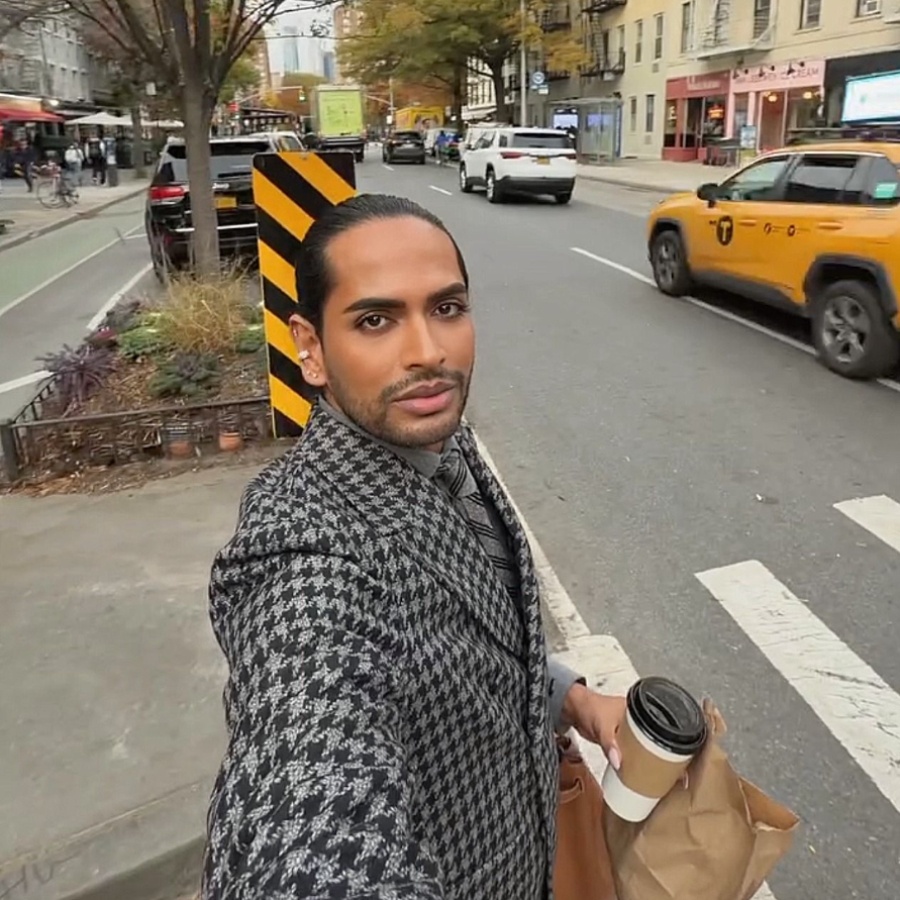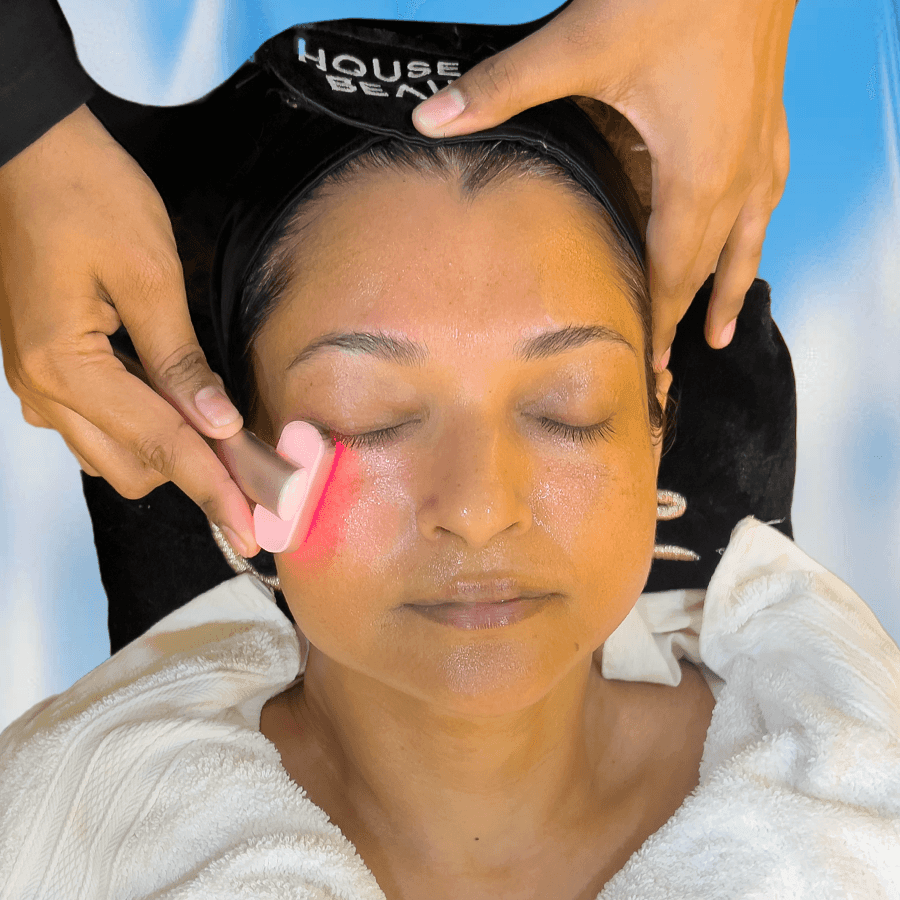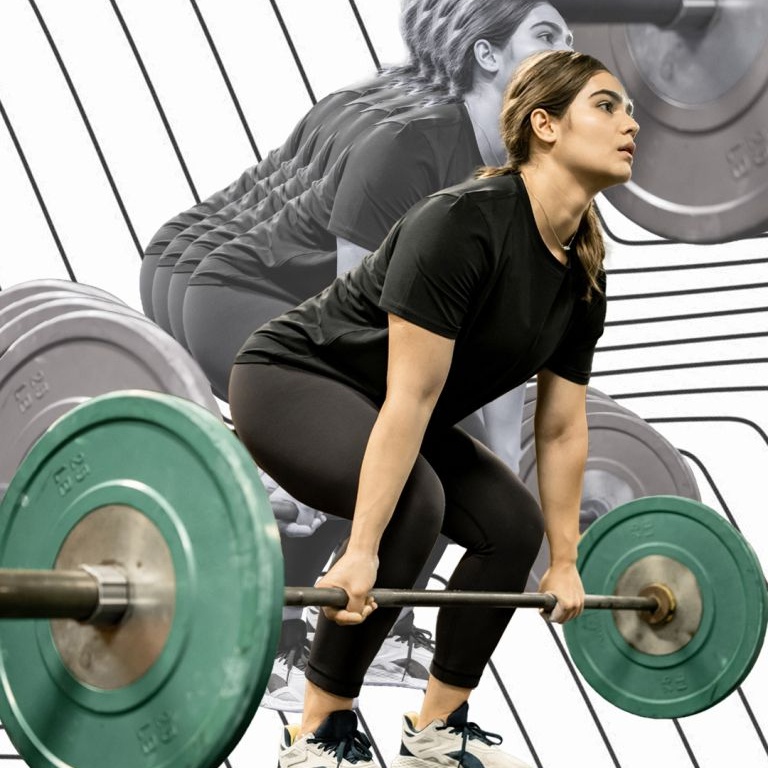The Indē Wild HQ at One Lodha Place in Mumbai’s Lower Parel is buzzing—but not quite with boardroom energy. It’s more the kind of vibe you’d expect from a beauty brand that’s made it to Sephora USA shelves and bagged a $5 million investment from Unilever Ventures.
At the centre of it all is Diipa Büller-Khosla—global influencer and Indē Wild founder—wrapping up a long video shoot, smile and blowout still intact. Just a few steps away, in a glass-walled cabin, her husband and co-founder, Oleg Büller, appears neck-deep in meetings. The space is flooded with natural light, minimal but warm—an Instagram-friendly aesthetic with indoor foliage at every turn. Fitting, really, for a couple of “social natives” who know their angles and algorithms. Between them, they have close to 2.4 million followers tracking their journey (Diipa, naturally, is the more active of the two), and that’s just on their personal Instagram.
“Our phones haven’t stopped ringing,” Diipa grins, referring to the buzz after the news broke on BoF last month. “Investors who passed on us are now asking for coffee catchups… and we’ve had to say, ‘No time.’”
The couple have been together for a decade now: she was born in Delhi, raised in Ooty, and left India at 18 to study Law and Psychology in the Netherlands. He was a Dutch International Law and History major. They first crossed paths at University College Utrecht—her first year, his third—but it wasn’t their time. Years (and a well-placed DM) later, they reconnected over dinner in Amsterdam, and the sparks finally flew. Now, they’re married, co-founders and parents to a joyful toddler named Dua, plus two much loved dogs. That same spark now fuels their professional life too.
So how did a three-year-old Indian brand catch the attention of Unilever Ventures and Sephora? “They saw the grit, the stamina, the way we problem-solve. And then came the numbers—Indē Wild grew 400 per cent last year,” says Diipa. But what really sealed the deal was their unique positioning. “We’re rooted in India but thriving in the US. It’s not just about selling products—it’s about telling a modern Indian story. Ayurveda meets Gen Z wellness, but in a way that’s real, not gimmicky.” Interestingly, Sephora reached out to them—not the other way around. “Their VP said, ‘You guys are drowning in authenticity. Most brands look, smell and feel the same. Yours made me excited again.’ That kind of feedback? Absolute gold,” says Oleg.
According to them, the thing that inspires this authenticity is their obsession with the ‘why’. In a world where beauty brands churn out SKUs like candy, Indē Wild has launched just six products in three years. “We’re not here to flood shelves. We question everything—from the ingredient list to how it fits our values,” Diipa says. Take their lip balm, for example. It started as a healing ointment but pivoted into a stick format because their community asked for something more user-friendly. “Same formula, a few tweaks, new format. We listened,” she adds.
The introduction of actives in our collective beauty vocabularies has pushed many Ayurveda-focussed brands to adopt a hybrid approach, one that marries the best of both worlds. For Diipa, that was the starting point. Her mom, a dermatologist-turned-Ayurveda practitioner, shaped her understanding of wellness. “I grew up between India and Europe, watching her mix scientific knowledge with traditional remedies. That dual lens is in everything I do,” she explains. The duo even coined their own term—Ayurvedistry—to describe their formulation philosophy.
Their research points to the modern desi consumer wanting products that feel rooted and ancestral but are also sleek, effective, and scientifically validated. Oleg puts it simply: “We’re merging heritage with now—and owning both.” It’s a challenge, since clean beauty has long been a space muddled by extremes—either leaning into fear-based messaging or pushing a hyper-clinical approach. Diipa points out the confusion: “Some brands shun actives altogether; others go full-on science. We bridge the two.” Their latest launch, the Luminary Eye Concentrate, is an example. “It has 17 active ingredients, but each one is carefully dosed and tested.” ‘Natural vs chemical’ is a moot point—their focus is transparency and efficacy. “Even water is a chemical,” she shrugs. “Let’s not get lost in labels.”
Being the face of the brand—especially one that grew from her personal platform—was a natural fit for Diipa. “It made sense that I would be the face—it grew from my personal brand. But yes, it’s exhausting. I’m Diipa the businesswoman in team meetings and product development; Diipa the face, doing shoots and content; and Diipa the personal brand, still engaging with my own platform. It’s exhausting, but also an honour.”
As for the “influencer” label? She doesn’t feel boxed in. “I was doing this before influencer was even a thing. People didn’t know what to make of me: Was I an actress? A stylist? In India, we love categories—Bollywood, businesswoman, influencer. I don’t buy into that. I’m just building something I believe in. Influence is just a launchpad. The Kardashians are prime examples. Yes, they are influencers, but they’re also reality TV stars. But today they are business moguls who are A-list celebrities as well.”
Of course, building a beauty brand isn’t all glow and good lighting. In July 2022, they launched Indē Wild in India and were sold out in 90 minutes. Their toughest lesson came soon after. Complaints about the AM serum, powered by 15 per cent L-ascorbic acid, started snowballing on social media: the product was oxidising in India’s heat. “People were receiving discoloured products by September,” she says. A warehouse audit showed stock stored in 45 to 50°C temperatures. “It was a scar, for sure. But it taught us how fast the highs can flip,” Oleg says. Influencers started calling the product hype. “We had two choices: cover it up or come clean. We chose honesty. We admitted the issue publicly, refunded customers, reformulated with a more stable version, and relaunched. Brutal—but it built trust,” Diipa says.
Diipa calls herself a “social native”—she understands digital marketing instinctively and thrives in that space. But, she admits, “The flip side is the noise. Negativity is loud.” In the early days, she’d scroll Reddit threads about the brand. “It felt like a dumping ground for unresolved feelings,” she says. “If you’ve got a real issue, message customer care. If it’s personal, just don’t buy the product.” That’s not to say that they don't take constructive criticism seriously; on their Instagram bio, right next to Diipa’s name, the brand proudly proclaims, “co-founded by YOU!”. Even five or six negative comments can trigger internal reviews. “We’ve reformulated products based on that,” she adds. “But Reddit? Total rabbit hole.”
For all its chaos, the internet has also been a source of the best kind of feedback. “We’ve had women say our Champi Oil helped regrow hair post-chemo, or our AM serum cleared 15-year-old pigmentation,” Oleg says. “We’d never know these stories without social media.”
Offline, it’s the push-pull of their working dynamic that keeps the business moving. Diipa is the fast-paced, big-picture thinker. Oleg slows it down, builds systems, asks the tough questions. “She’ll say, ‘We’re climbing Everest,’ and I figure out the first five steps to get us there,” he says. There were initial clashes, of course—“Wait, are you stepping into my lane?” moments—but those settled quickly. “We’ve learned to trust each other’s calls. It’s like building your favourite game with your favourite person,” Diipa smiles. “When it stops feeling like that, we’ll know it’s time to recalibrate.”




